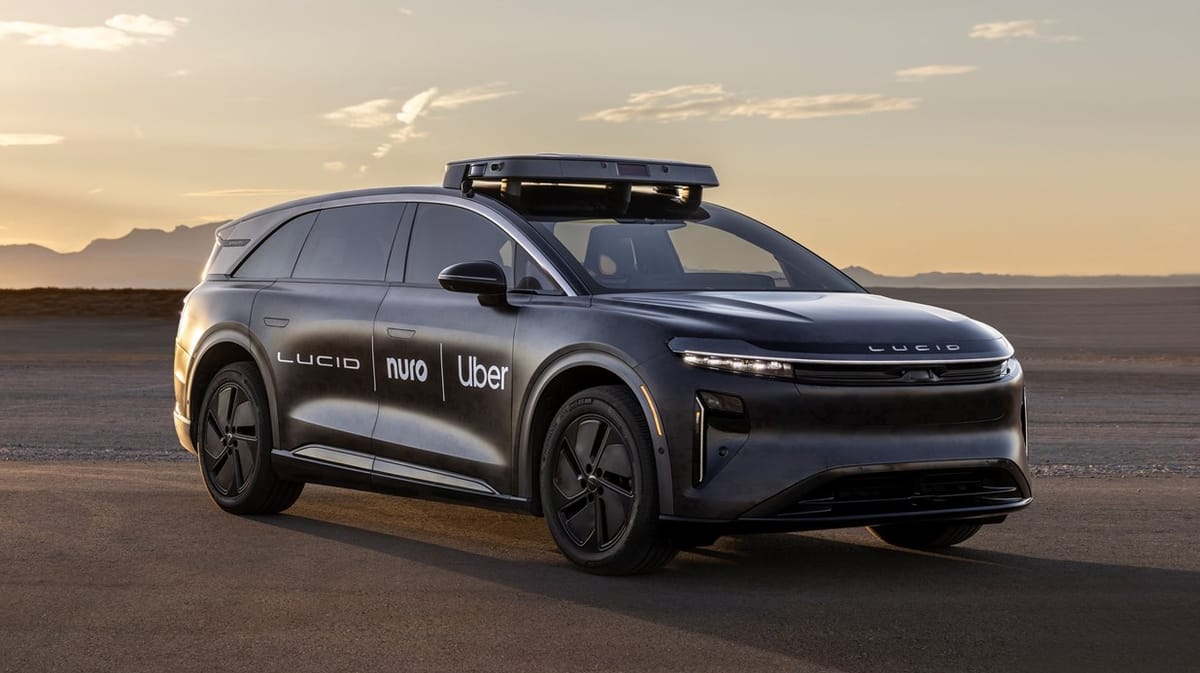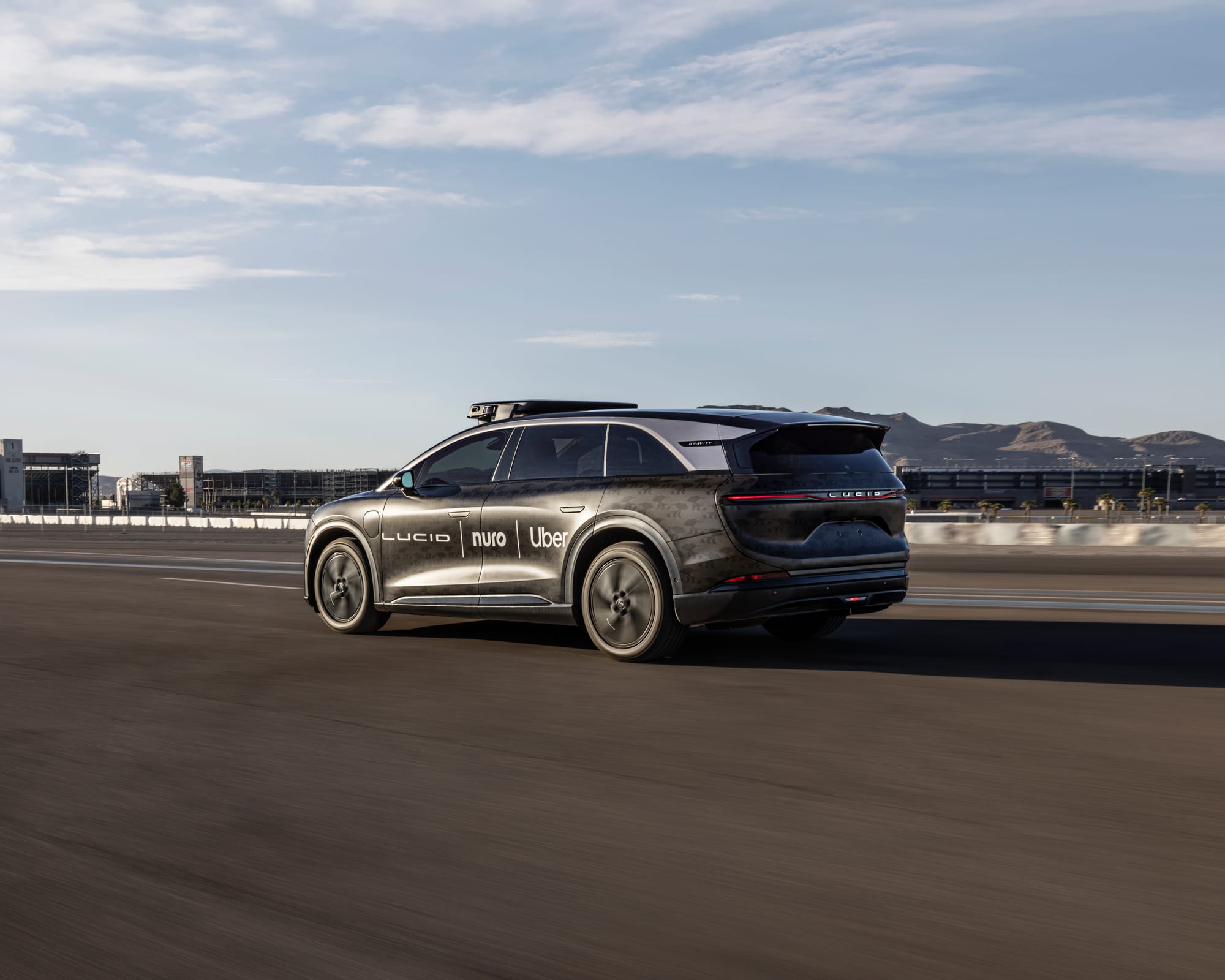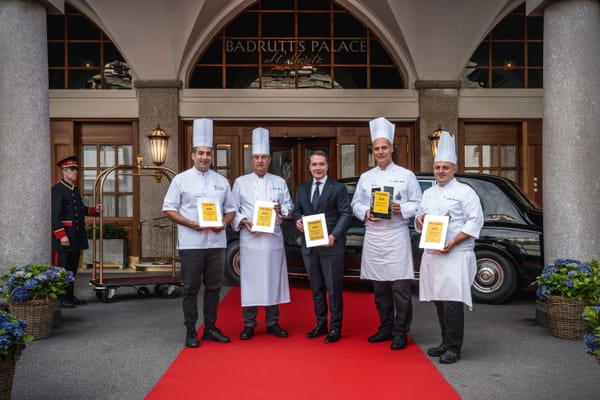Your Next Chauffeur Doesn’t Need a Licence
A new vision of luxury mobility as Lucid Nuro and Uber unite to bring intelligent autonomous travel to life that is elegant, safe and human-first.

Luxury has always evolved with the times. Once defined by exclusivity and material refinement, it is now increasingly shaped by purpose, innovation, and the quiet sophistication of intelligent design.
In that spirit, a new partnership between Lucid Motors, Nuro, and Uber signals something beyond just a technological milestone; it gestures toward a future where luxury is autonomous, seamless, and deeply considered.
Credit: Lucid
Announced this month, the collaboration unveils a premium global robotaxi initiative developed exclusively for Uber. However, what sets this project apart isn’t only its scale or its hardware, though both are considerable; it is its vision.
This is not a retrofit of technology onto transport. It is a purpose-built convergence of design, software, and human intention, developed from the ground up to offer something rare in today’s landscape: quiet intelligence at scale.
At its core, the initiative marries three distinct but complementary forms of mastery. Lucid brings its Gravity platform, a vehicle designed not just for efficiency, but for elegance.
With its industry-leading range and open, refined interior architecture, Gravity provides more than just space; it offers stillness, a kind of meditative escape that one doesn’t typically associate with urban mobility.
To this, Nuro contributes its deeply tested Level 4 autonomous driving system, an AI-first platform that has spent nearly a decade evolving on real roads and in complex environments.

This isn’t experimental tech in disguise; it is a system shaped by years of deliberate, safety-centred deployment. It is also vehicle-agnostic and highly scalable, meaning it was built not merely to exist, but to last.
Uber, for its part, lends its unparalleled global footprint and dynamic fleet infrastructure, allowing this vision to unfold not as a boutique experiment, but as a real, operational shift in how millions might one day move through the world.
Slated to launch in a major US city by late next year, the new robotaxi service will begin its journey with 20,000 Lucid vehicles over a six-year deployment, each fully autonomous, fully electric, and seamlessly integrated into the Uber app.
For now, the prototype has begun testing in a controlled environment at Nuro’s proving grounds in Las Vegas; a silent rehearsal for a revolution in motion.
But beyond the impressive specifications and projected rollout is a more interesting question: what does it mean when luxury becomes autonomous?
For Lucid’s Interim CEO Marc Winterhoff, it’s about putting people first. “Our platform wasn’t just built to be driven,” he explains, “but to be a space worth inhabiting.” In an autonomous world, the passenger becomes the focus and the experience, the destination.
Nuro’s CEO and co-founder, Jiajun Zhu, emphasises trust. “We’ve spent years developing a system that’s both safe and intelligent,” he says. Just as vital, he adds, is how it feels; stepping into a vehicle designed not only to drive, but to welcome.
Even Uber CEO Dara Khosrowshahi strikes a thoughtful tone. “Autonomous vehicles can transform our cities for the better,” he says. “But it’s not just about efficiency, it’s about making something meaningful, even magical, accessible to more people.”
And so the narrative moves from novelty to nuance. Yes, the Lucid Gravity’s 450-mile range is impressive. Yes, the Level 4 autonomy is among the most advanced in the world.
But it is the union of quiet engineering and elevated intention that makes this partnership remarkable.
Luxury, after all, is no longer just about what is rare. It is about what is right; right for the moment, right for the world, and right for the individual.
In that light, the Lucid-Nuro-Uber alliance is not simply a new product or platform. It is a question posed to the future of mobility: What if the most extraordinary ride was the one you never had to think about?





